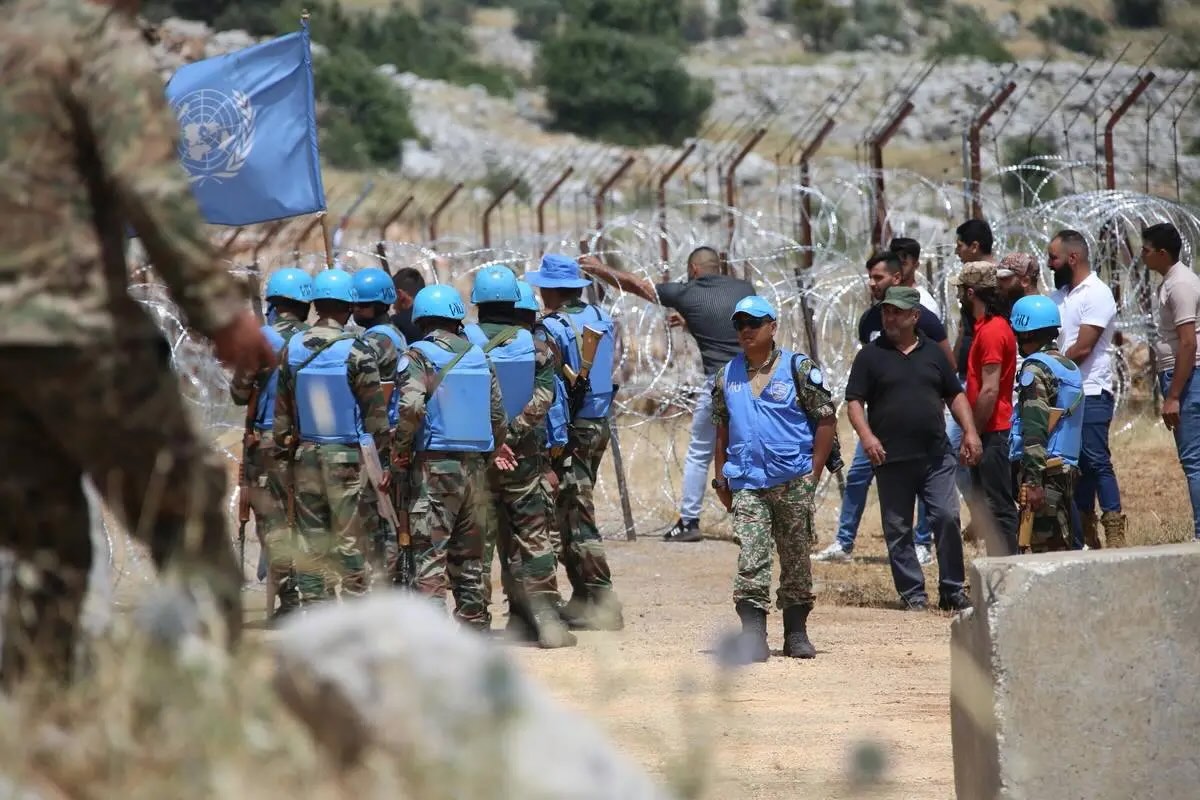
Why are Israel-Lebanon border tensions so high? The Israel-Lebanon border has long been a hotspot for conflict. Historical disputes, territorial claims, and political differences fuel the ongoing tensions. Hezbollah, a powerful militant group in Lebanon, often clashes with Israeli forces, escalating the situation. Both nations have a history of wars and skirmishes, with each side blaming the other for provocations. Economic interests, such as control over natural resources, also play a significant role. International involvement, including UN peacekeeping missions, attempts to maintain stability but struggles to achieve lasting peace. Understanding these factors helps explain why this border remains one of the world's most volatile regions.
Historical Background
Understanding the history of Israel-Lebanon border tensions requires a look back at key events that have shaped the region.
- The Israel-Lebanon border was established in 1923 under the British and French Mandates.
- Lebanon gained independence from France in 1943, while Israel declared independence in 1948.
- The first Arab-Israeli War in 1948 saw Lebanon join other Arab nations in fighting Israel.
- The 1949 Armistice Agreement established a ceasefire line, but it did not resolve underlying conflicts.
- Palestinian refugees fled to Lebanon after the 1948 war, adding to regional tensions.
Key Conflicts
Several major conflicts have erupted along the Israel-Lebanon border, each contributing to ongoing tensions.
- The 1967 Six-Day War saw Israel capture territories from neighboring Arab countries, including parts of Lebanon.
- PLO (Palestine Liberation Organization) used southern Lebanon as a base for attacks on Israel in the 1970s.
- Operation Litani in 1978 was an Israeli military campaign aimed at pushing PLO forces away from the border.
- The 1982 Lebanon War saw Israel invade Lebanon to expel the PLO, leading to a prolonged occupation.
- Hezbollah, a Shiite militant group, emerged in the 1980s with Iranian support, targeting Israeli forces.
Hezbollah's Role
Hezbollah has played a significant role in the ongoing conflict, often acting as a state within a state in Lebanon.
- Hezbollah was founded in 1985 with the goal of resisting Israeli occupation.
- The group receives significant financial and military support from Iran.
- Hezbollah's 2000 victory: Israel withdrew from southern Lebanon after 18 years of occupation, a move seen as a victory for Hezbollah.
- The 2006 Lebanon War was triggered by Hezbollah's capture of two Israeli soldiers, leading to a month-long conflict.
- Hezbollah's arsenal includes thousands of rockets capable of reaching deep into Israeli territory.
Border Incidents
Frequent skirmishes and incidents along the border keep tensions high.
- Blue Line: The UN established this demarcation line in 2000 to confirm Israel's withdrawal from Lebanon.
- Shebaa Farms: This disputed area remains a flashpoint, claimed by both Lebanon and Israel.
- 2008 incident: Hezbollah fired rockets into northern Israel, prompting Israeli airstrikes.
- 2015 border clash: Hezbollah attacked an Israeli military convoy, killing two soldiers.
- 2020 tunnel discovery: Israel uncovered Hezbollah tunnels crossing into its territory, intended for attacks.
International Involvement
Global powers and organizations have often intervened in the Israel-Lebanon conflict.
- UNIFIL: The United Nations Interim Force in Lebanon was established in 1978 to oversee peacekeeping.
- UN Security Council Resolution 1701: Passed in 2006, it called for a ceasefire and the disarmament of Hezbollah.
- U.S. involvement: The United States has provided military aid to Israel and diplomatic support for peace efforts.
- French mediation: France has historically played a role in mediating between Lebanon and Israel.
- Iran's influence: Iran's support for Hezbollah complicates peace efforts and adds a regional dimension to the conflict.
Human Impact
The ongoing conflict has had a profound impact on civilians in both countries.
- Displacement: Thousands of Lebanese civilians have been displaced by conflicts.
- Casualties: Both Israeli and Lebanese civilians have suffered casualties from rocket attacks and airstrikes.
- Economic impact: The conflict has hindered economic development in southern Lebanon.
- Psychological toll: Constant threat of violence has led to widespread trauma among border communities.
- Humanitarian aid: Various international organizations provide aid to affected civilians.
Current Situation
The situation remains tense, with both sides preparing for potential future conflicts.
- Border fortifications: Israel has built extensive fortifications along the border to prevent infiltrations.
- Hezbollah's military buildup: The group continues to amass weapons despite international calls for disarmament.
- Diplomatic efforts: Sporadic diplomatic efforts aim to reduce tensions, but a lasting peace remains elusive.
- Public opinion: Both Israeli and Lebanese populations have mixed feelings about the conflict, with some advocating for peace and others supporting continued resistance.
Final Thoughts on Israel-Lebanon Border Tensions
Israel-Lebanon border tensions have deep roots and complex layers. From historical conflicts to modern-day skirmishes, the region remains a hotspot for geopolitical struggles. Understanding the key events, players, and motivations behind these tensions helps grasp the broader Middle Eastern dynamics.
Both nations have experienced significant losses and continue to face challenges in achieving lasting peace. The international community's role in mediating and supporting diplomatic efforts is crucial. While the future remains uncertain, awareness and informed discussions can pave the way for potential resolutions.
Stay informed, stay engaged, and remember that behind every headline, there are real lives affected by these ongoing conflicts. Knowledge is power, and by understanding the intricacies of Israel-Lebanon relations, we can contribute to a more informed and empathetic global community.
Was this page helpful?
Our commitment to delivering trustworthy and engaging content is at the heart of what we do. Each fact on our site is contributed by real users like you, bringing a wealth of diverse insights and information. To ensure the highest standards of accuracy and reliability, our dedicated editors meticulously review each submission. This process guarantees that the facts we share are not only fascinating but also credible. Trust in our commitment to quality and authenticity as you explore and learn with us.
